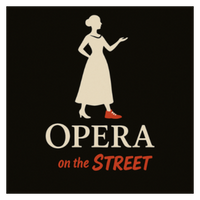Unlocking the World of Opera for Everyone
- Oct 29, 2025
- 4 min read
Opera often feels like an art form reserved for a select few. Its grand theaters, complex stories, and foreign languages can seem intimidating to newcomers. Yet, opera offers a rich experience filled with powerful music, dramatic storytelling, and stunning visuals. This post explores how anyone can discover and enjoy opera, breaking down barriers and making this timeless art accessible to all.
Opera is more than just an old tradition. It combines music, theater, and sometimes dance to tell stories that touch on human emotions and experiences. The challenge lies in how to approach opera without feeling lost or overwhelmed. Let’s explore practical ways to unlock the world of opera and enjoy it fully.
Understanding What Opera Is
Opera is a form of theater where the story is told mainly through singing, accompanied by an orchestra. Unlike musicals, opera usually features classical singing styles and often uses languages like Italian, German, or French. The stories range from historical dramas to myths and comedies.
Knowing this helps set expectations. Opera is not just about listening to music; it’s about experiencing a story through a combination of voices, instruments, acting, and stage design. This blend creates a unique emotional impact.
Finding the Right Opera to Start With
Choosing the right opera can make a big difference for beginners. Some operas are easier to follow and more engaging for new audiences. Here are a few suggestions:
La Bohème by Puccini: A touching story about young love and hardship in Paris. The music is beautiful and accessible.
The Magic Flute by Mozart: A fairy tale with clear characters and a mix of serious and funny moments.
Carmen by Bizet: A passionate story with memorable melodies and dramatic scenes.
These operas have clear plots and music that many find appealing. Watching or listening to these first can build confidence and interest.
Using Subtitles and Translations
One common barrier is language. Most operas are performed in their original language, which can make understanding the story difficult. Fortunately, many opera houses and streaming services provide subtitles or translations.
Subtitles appear on screens above or below the stage, showing the text in your language. This helps you follow the story without missing the music’s flow. If you watch recorded performances online, you can often turn on subtitles or read synopses before watching.
Exploring Opera in Different Formats
Opera is no longer limited to grand theaters. You can experience it in many ways:
Live performances: Attending a local opera house or festival offers the full experience with live music and stagecraft.
Cinema broadcasts: Many opera houses stream performances to movie theaters worldwide, making it easier to access.
Online streaming: Platforms like Met Opera on Demand or YouTube offer a wide range of operas to watch at home.
Radio and podcasts: Listening to opera performances or discussions can deepen your understanding.
Trying different formats helps find what suits your lifestyle and preferences.

Preparing Before Watching an Opera
Preparation can enhance your enjoyment. Here are some tips:
Read a synopsis: Knowing the story outline helps you follow the action.
Listen to highlights: Sampling famous arias or choruses prepares your ear for the music style.
Learn about the composer: Understanding the composer’s background and era adds context.
These steps make the experience less confusing and more rewarding.
Appreciating the Music and Voices
Opera singers use powerful techniques to project their voices over an orchestra without microphones. Different voice types (soprano, tenor, baritone, etc.) play specific roles in the story. Learning about these can deepen your appreciation.
The orchestra also plays a vital role, setting moods and supporting the singers. Paying attention to the music’s changes can reveal emotions and plot twists.
Engaging with Opera Beyond the Performance
Opera offers more than just the show. Many opera companies provide educational programs, pre-show talks, and behind-the-scenes tours. These activities help audiences connect with the art form.
Joining opera clubs or online communities can also enrich your experience. Sharing thoughts and questions with others makes opera more social and less intimidating.
Overcoming Common Misconceptions
Some people think opera is boring, outdated, or only for the elite. These ideas come from stereotypes rather than reality. Modern opera productions often include innovative staging, relatable stories, and diverse casts.
Opera can be funny, thrilling, and emotional. It reflects human experiences that anyone can relate to, regardless of background.
Making Opera a Regular Part of Your Life
Once you discover what you enjoy about opera, consider making it a habit. Attend performances when possible, explore new operas, and keep learning. Over time, you’ll find opera becomes a source of inspiration and enjoyment.
Start small and build your interest naturally. Even listening to an aria during your day can bring a moment of beauty.
Opera is a world waiting to be explored. With the right approach, anyone can unlock its power and joy. Whether you attend a live show, watch a streamed performance, or listen to recordings, opera offers a unique way to experience music and storytelling.
Take the first step today by choosing an opera that interests you and giving it a try. You might find a new passion that enriches your life in unexpected ways.





Comments